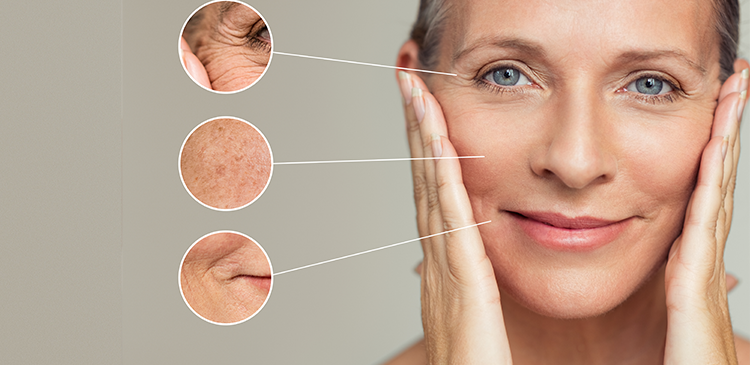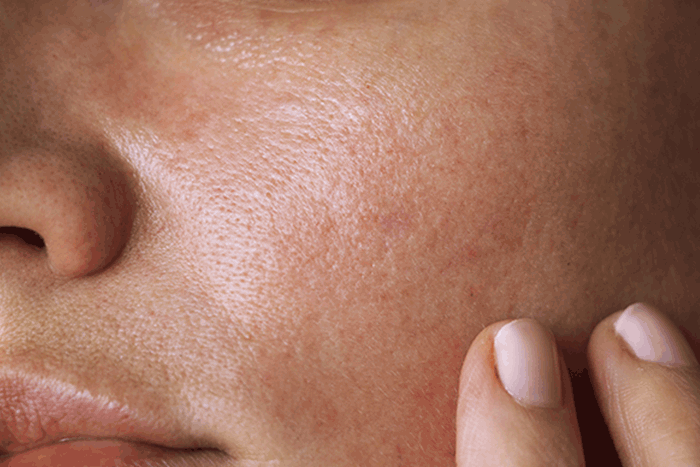Is Vitamin A, Retinyl Palmitate and Retinol Safe for Pregnant Women?
Yes, it is safe to use in topical applications on the skin using properly formulated skin care products. Unlike the liver, the skin doesn’t have the enzymes necessary to convert Vitamin A for transport into the blood stream. That is, Vitamin A, as Retinyl Palmitate used in skin care products should not lead to excess Vitamin A in the body, making it safe for pregnant women.
The confusion appears to be the application of known issues related to under and over consumption of Vitamin A through foods and supplements with topical applications (use on skin) of products with Vitamin A.
Vitamin A deficiency (under consumption) and toxicity (over consumption) can be both harmful to pregnancies. In this day and age when anyone can say anything without accountability, its best to double check the source of information and cross reference to other reliable accredited sources of factual knowledge. A blanket statement asserting that Vitamin A is harmful for pregnancies is not only incorrect, but dangerous. A balanced nutrition is important for all pregnancies, including the intake of Vitamin A.
What is Vitamin A?
“Vitamin A is the name of a group of fat-soluble retinoids, primarily retinol and retinyl esters” National Institute of Health (hyper link the name to below)
From <https://ods.od.nih.gov/factsheets/VitaminA-HealthProfessional/>
In the human diet, vitamin A can be naturally found in two categories:
- Preformed Vitamin A (retinol, retinyl esters) found in animal products, fortified foods and vitamin supplements, and
- Provitamin A carotenoids (plant foods like carrots containing beta-carotenes) that are converted to retinol. Note that not all carotenoids in food like lycopene, lutein and zeaxanthin are not converted to Vitamin A by the body.
Vitamin A Deficiency (VAD) vs Vitamin A Toxicity
Yes, over consumption of Vitamin A through food and supplementation can be toxic:
- “Overconsumption of preformed vitamin A can be highly toxic and is especially contraindicated prior to and during pregnancy as it can result in severe birth defects. The tolerable upper intake level (UL) for vitamin A in adults is set at 3,000 μg RAE/day. The UL does not apply to vitamin A derived from carotenoids. (More information)” From https://lpi.oregonstate.edu/mic/vitamins/vitamin-A>
- Note that Vitamin A derived from ‘carotenoids’ (foods like carrots) has no ‘UL’ or upper limit. Its safe for your body.
However, Vitamin A deficiency is just as problematic, especially during pregnancy:
- “Vitamin A deficiency is a major cause of preventable blindness in the world. It is most prevalent among children and women of childbearing age. Vitamin A deficiency is associated with an increased susceptibility to infections, as well as to thyroid and skin disorders. (More information)
- The recommended dietary allowance (RDA) is 700 micrograms of retinol activity equivalents (μg RAE)/day for women and 900 μg RAE/day for men. (More information)” From <https://lpi.oregonstate.edu/mic/vitamins/vitamin-A>
Like everything in life it is all about balance!
Benefits of Vitamin A in Skin Care
Vitamin A can help your skin address wrinkles, acne and help your skin renew itself.
Vitamin A, in its Retinyl Palmitate form, is naturally found in our skin, and is the largest store of Vitamin A for its use by our body. Vitamin A works through accelerating the rate of cell turnover (this makes way for ‘new’ skin to appear on the surface quicker than it normally would), it helps treat a number of concerns including oily skin, dullness, pigmentation and skin texture. The skin renewal process helps boost collagen and elastin production to help improve the appearance of fine lines.
Although topical application of Vitamin A through the use of skin care products are safe to use during pregnancy, too much Vitamin A can result in skin irritation in the form of peeling and erythema (type of skin rash caused by injured or inflamed blood capillaries) – often experienced with the use of Retinol and Retin A prescription based and over the counter skin care products. For more information on Vitamin A, please read our post here!
For best results, Vitamin A, like all skin beneficial ingredients, in a gentle, layered approach (skin care layering) to reduce adverse reactions and increase its overall potency and efficacy. Also, delivery of beneficial ingredients – nourishment, hydration and protection – must be done after the skin is gently and thoroughly cleansed using the double cleansing method.
The sequence of a skin care routine and the interaction of various skin care products on the skin should be holistically considered to get the most benefit from safe and skin beneficial ingredients like Vitamin A. This way, using Vitamin A IS definitely safe for use for pregnant women.
We are here to help – feel free to reach out to us by clicking here!
SOURCES:
- Vitamin A Toxicity – StatPearls – NCBI Bookshelf (nih.gov)
- Retinoids: active molecules influencing skin structure formation in cosmetic and dermatological treatments – PMC (nih.gov)
- Characterization of esterase and alcohol dehydrogenase activity in skin. Metabolism of retinyl palmitate to retinol (vitamin A) during percutaneous absorption – PubMed (nih.gov)
- Retinol and Retinyl Palmitate – Wilbur Johnson, 2017 (sagepub.com)







